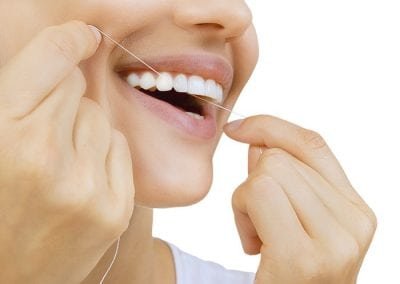Dental Hygiene and – Periodontal Health
Maintain optimal gum health with our comprehensive dental hygiene services, focusing on prevention and treatment of periodontal disease for a healthy smile.
The importance of oral hygiene for the health of your teeth and your overall health can’t be overstated. Neglecting to brush and flush your teeth results in a plethora of diseases, including gingivitis (gum inflammation, gum disease (periodontitis), tooth decay (cavity), bad breath, and oropharyngeal cancer. These diseases can be prevented by brushing and flushing your teeth every day.
Understanding Periodontics
Periodontics is the branch of dentistry concerned with the supporting structures of the teeth, as well as the study and treatment of the conditions and diseases that affect them. Among the many consequences of the lack of proper oral hygiene are periodontal diseases. Chief among them is periodontitis. Commonly known as gum disease, it usually begins with a bacterial infection in the mouth and ends with the loss of the infected tooth because of the loss of the surrounding tissue if not treated in time.

At Maiden Lane Dental our dentists specialize in the diagnosis, treatment, and prevention of periodontal disease, therefore, we are referred to as periodontists. Coinciding with this specialization we are specialists in dental implants and oral inflammation.
Causes of Gum Disease
- Poor oral hygiene: Neglecting to brush and floss the teeth daily make the teeth a fertile ground for the bacteria that cause gingivitis. If gingivitis is left untreated, it can advance to periodontitis.
- Smoking, chewing tobacco, etc.: Bad habits, such as smoking and chewing tobacco, make it hard for damaged gum tissue to repair itself. In time, this can lead to gum disease.
- Hormonal changes: Changes in the hormones that occur during puberty, pregnancy, menstruation, and menopause can make your gums more sensitive, increasing the chances of gingivitis. If left untreated, gingivitis can advance to gum disease.
- Illnesses: Diseases, such as cancer and HIV, weaken the body’s immune system, which can make the gums more vulnerable to gingivitis-causing bacteria. People with diabetes are at a higher risk because of the body’s reduced ability to use blood sugar.
- Medications: Some drugs can reduce the flow of saliva, which protects the teeth and gums. Some drugs, such as the anticonvulsant Dilantin and the anti-aging Procardia, can cause the gum tissue to grow abnormally. As a result, the gum becomes vulnerable to gum disease.
- Heredity: Heredity also plays a role in gum disease.
Symptoms of Gum Disease
Gum disease often progresses painlessly so patients are unaware until an advanced stage. If you have any of the following symptoms it is extremely important to give us a call.
- Your gum bleeds during and after brushing.
- Your gums are tender, red or swollen.
- Your breath persistently smells bad and/or you have a bad taste.
- You notice your gumline receding.
- There are deep pockets in the space under the gums and above the teeth.
- Your teeth have become loose or shifted.
- You have noticed a change in the way your upper and lower jaws fit together when biting.
Treatment and Prevention of Gum Disease
Gum diseases can be treated using a range of options, such as nonsurgical therapies that control the growth of bacteria, to a surgical procedure that restores the tissue that supports the gum.
- Nonsurgical treatment options include professional dental cleaning (removal of plaque and tartar from the tooth surface) and scaling and root planning (removal of plaque and tartar from above and below the gumline).
- Surgical treatment options include flap surgery/pocket reduction surgery (plaque and tartar are removed by lifting the gums), bone graft (replaces bone destroyed by gum disease), soft tissue graft (reinforces or fills in the places exposed by receding gums), guided tissue regeneration (stimulates bone and tissue growth where the bone supporting the teeth has been destroyed), and bone surgery (reshapes the bone around the tooth to reduce craters).
Get ahead of the curve with your appointment!
Experience cutting-edge dental care in the heart of Downtown Seattle.

Gum disease can be prevented by proper oral hygiene. Brushing removes plaque from the surface of your teeth. Flossing removes plaque from between the teeth and under the gums. Professional plaque cleaning should be done at least twice a year to remove obstinate plaque.
Contact Maiden Lane Dental today and let us do a thorough examination to help you to prevent or fix a periodontal issue you may be facing. Call us at 212-509-4585 or use our contact form. One of our staff technicians will be happy to set up an appointment at your earliest convenience.
